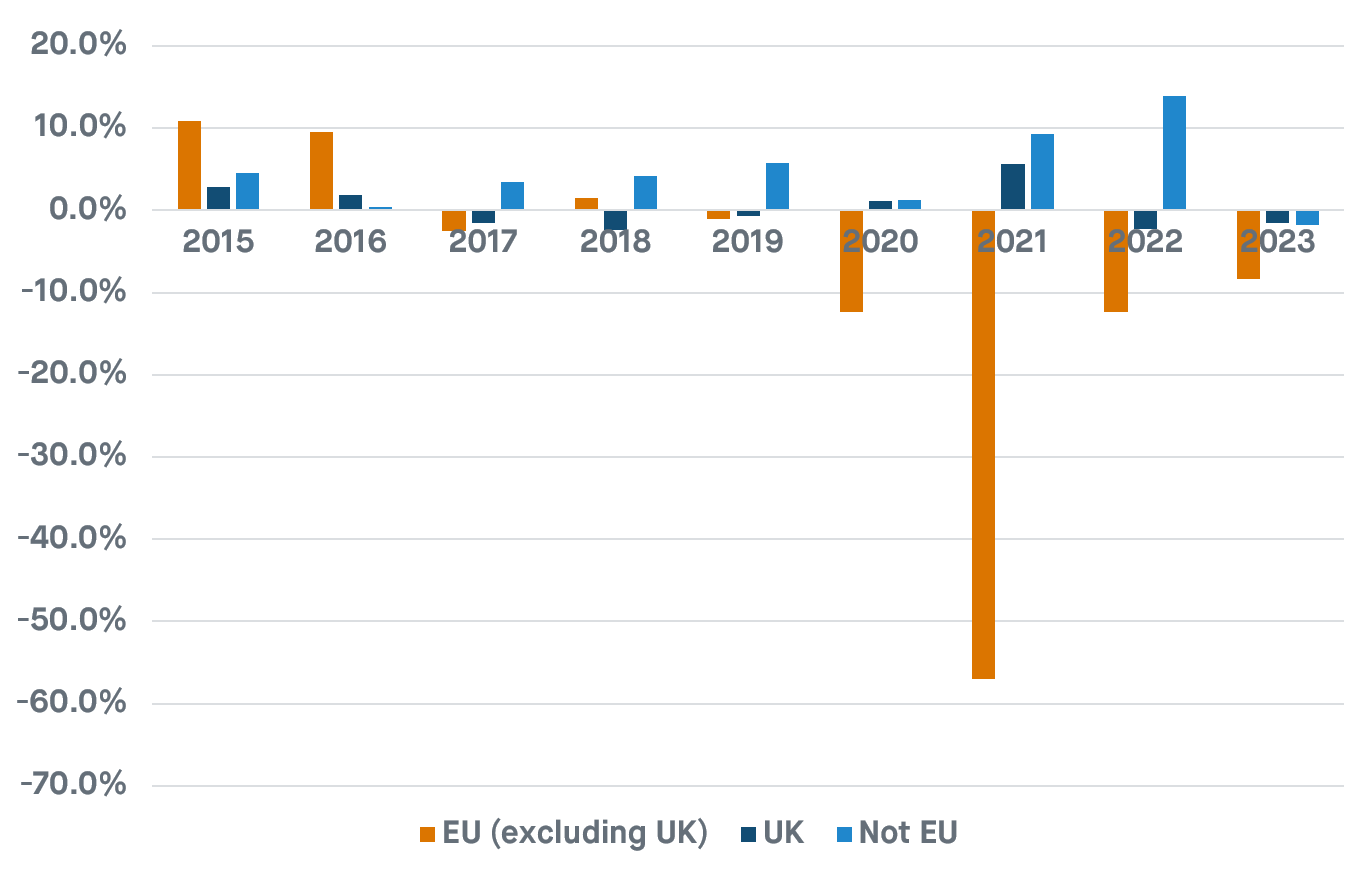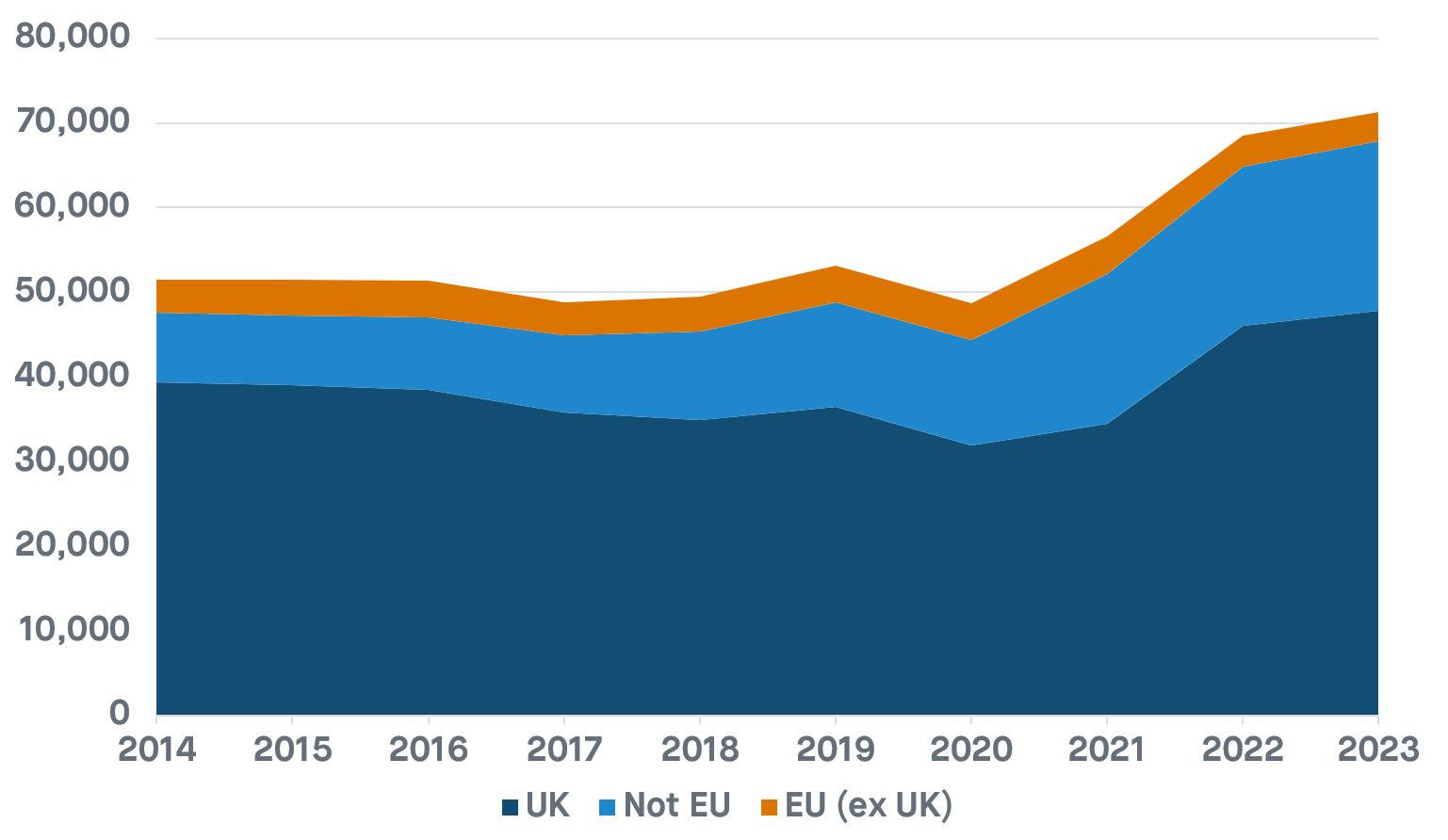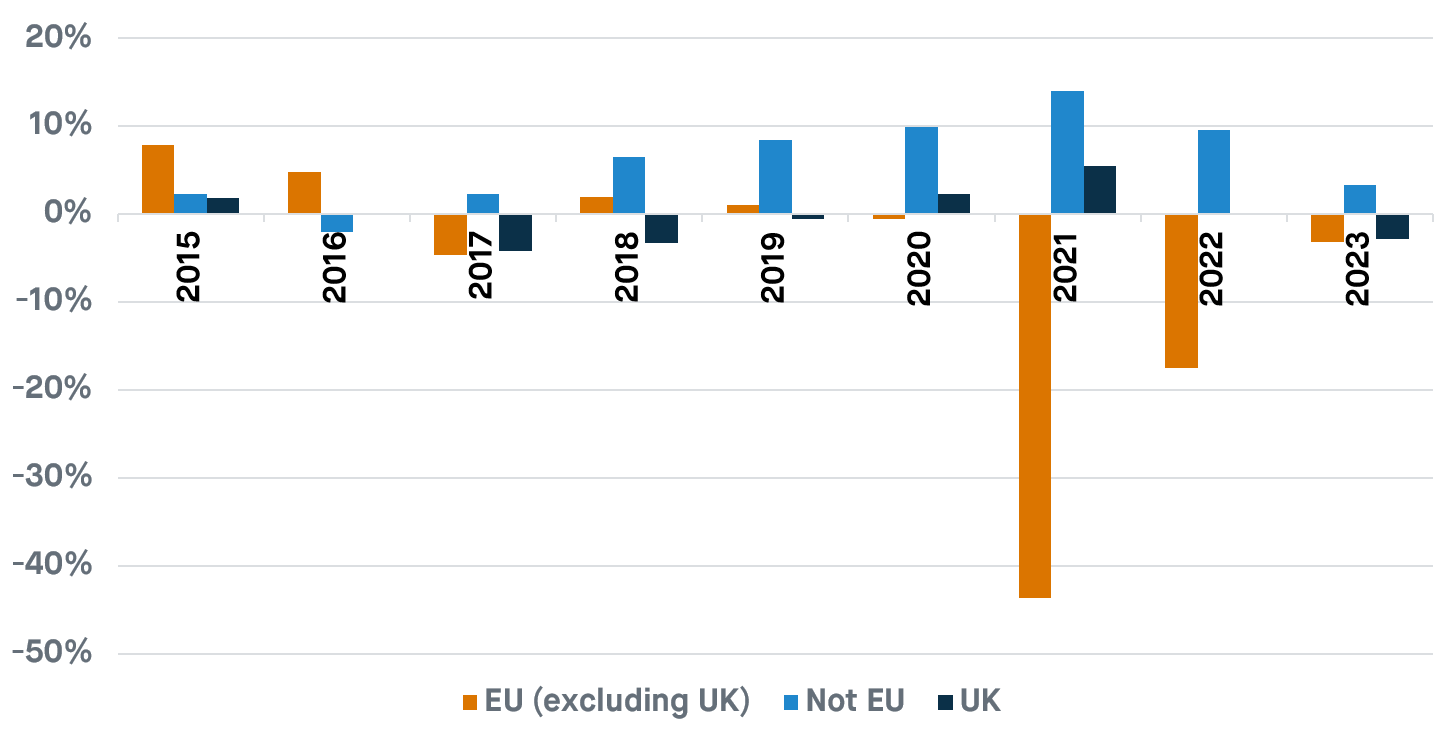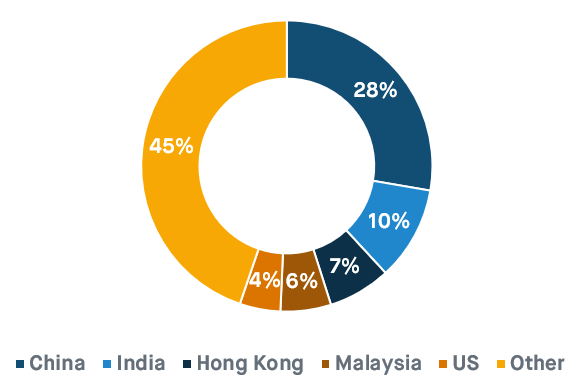
UCAS Clearing Update: 6 Days After JCQ Results Day

Key Findings
- The number of 18-year-olds in Clearing on results day was up for all domiciles in 2023: 4.2% higher than in 2022.
- Non-EU international applicants are up 3.3% YoY, albeit this is a slower pace than in recent years.
- Chinese acceptances are down substantially at this stage YoY at -11.8% (6 days after JCQ results day).
UCAS: What does the latest Clearing data Tell Us?
Following JCQ and SQA results days, UCAS has released statistics around the number of applicants to UK universities and the number of students in Clearing before the start of the 2023/24 academic year.
Firstly, the rise in the number of 18-year-old students entering the Clearing process continues to increase. In comparison to the previous year, there has been a notable rise of 4.2% in Clearing, resulting in a total of 71.3K. A key driving factor is the push to reverse the COVID-era grade inflation.
This grade deflation post-COVID is essentially where students are not getting their expected grades thanks to over-inflated predicted grades. We saw the number of students in Clearing reach a low in 2020, due to the distribution of predicted grades in place of exams during the pandemic.
By domicile, the percentage of non-EU international students in Clearing rose the most YoY, at 5.9%, whilst EU internationals in Clearing fell by 2.2%, albeit this related to just 80 fewer students.
The flow of students into Clearing has a knock-on effect on university recruitment strategies and the accommodations sector, especially for PBSA operators, who might encounter challenges in promptly filling vacancies resulting from last-minute cancellations.
Figure 1: 18 yr-olds in Clearing by Domicile (JCQ results day)
Applicants by Domicile
The UCAS figures also break down the number of applicants by domicile, with daily updates released through the process. As of 6 days post the JCQ results day, UK applicants were down 2.8% compared to last year. Splitting by the other key demographics, EU numbers are again down YoY, albeit at a lower rate than the previous two years. Following a harsh drop of 43.6% in 2021 and a fall of 17.5% in 2022, EU applicants are down by just 3.2%. This is still likely a ripple effect of Brexit and the loss of home fee status
Meanwhile, non-EU numbers are up from 2022 levels, increasing by 3.3% (+3.7K). Interestingly, this is not as strong as growth in previous years, suggesting that non-EU international student demand may start to slow in the coming years and is a demographic to keep an eye on.
Figure 2: Applicants by Domicile (6 days after JCQ results day)
Source: UCAS, StuRents
Acceptances by Domicile
Acceptances by domicile show a slightly different story to applications. At this stage in the cycle, the UK acceptances are down 1.5%. This compares to 2.3% down at this point in 2022. EU acceptances are down 8.3% in 8.3%, compared to 12.4% in 2022. The demographic to keep an eye on with these figures is non-EU internationals. At this point in the cycle despite a rise in applications, acceptances are 1.7% down. At the same time last year, this was up by a sizable 13.9%.
Figure 3: Acceptances by Domicile (6 days after JCQ results day)
Source: UCAS, StuRents
Acceptances by Country
Non-EU international students make up an important part of the PBSA target audience and each country carries their own specific requirements.
Regarding the largest 3 countries, China retained the highest proportion of acceptances at 28%. Despite this majority, acceptances are down by 1.7K at this stage YoY marking the largest absolute decline of all non-EU countries. The second largest acceptances came from India with a share of 10%. This is 13.8% up on acceptances at this stage last year.
Figure 4: Acceptances by Country (6 days after JCQ results day)
Source: UCAS, StuRents
To get the latest insights into student accommodation research in the UK, become an Insider.
Share




